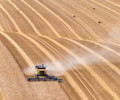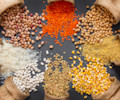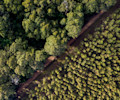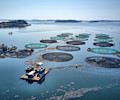FAIRR, the $70 trillion-backed investor network, broadly welcomes the first Global Stocktake, but calls for more focus on the need to transition the global food system:
better recognition of food systems in mitigation action,
more emphasis on the need to repurpose environmentally harmful agricultural subsidies, and
recognition of the need to shift diets.
(London, 15 December 2023) This year’s UN global climate summit, COP28, saw the release of the world’s first Global Stocktake. The stocktake reflects the political commitment to the Paris Climate Goals agreed eight years ago, taking an inventory of progress to date against those goals. In September, the UNFCCC technical report on the Global Stocktake made recommendations on how those goals can be met despite the shortfall in action so far. The Global Stocktake document agreed on the last day of COP28 summarises the commitments to which the 198 countries, who are party to the conference, were able to collectively agree.
FAIRR welcomes several key points in the Global Stocktake, which help to set the direction of travel for the change needed, including:
The encouragement of integrated and multi-sectoral solutions for food systems - which don’t treat nature and land as separate from agriculture and livelihoods
The inclusion of text highlighting the need to protect and restore nature (in line with the Kunming-Montreal Global Biodiversity Framework) – as well as the need to halt and reverse deforestation
While FAIRR welcomes the recognition of the importance of resilient food systems, this does not go far enough. Agri-food systems are not only heavily exposed to climate change risks, they are also responsible for 30% of greenhouse gas emissions and, therefore, must form part of any mitigation action.
A FAIRR-led investor statement earlier this year, backed by US $7 trillion, called on the G20 Finance Ministers to reform agricultural subsidies in line with UN climate and nature goals. FAIRR views the lack of inclusion in the Global Stocktake as a missed opportunity to address this issue.
FAIRR welcomed the mention of the “importance of transitioning to sustainable lifestyles and sustainable patterns of consumption and production in efforts to address climate change”. However, the technical Global Stocktake synthesis report and the UN FAO [Food and Agriculture Organization] Roadmap went further and specifically added that “higher income countries can benefit from reduced consumption of animal-source foods and lower income countries can benefit from improved access”.
The Global Stocktake, as well as the UAE Declaration on Sustainable Agriculture, Resilient Food Systems, and Climate Action, sends a clear signal to the sector and to investors that food needs to be an integral part of any conversation on tackling climate change.
Dr Lucrezia Tincani, Head of Policy at the FAIRR Initiative, said:
“FAIRR welcomes the recognition in the Global Stocktake that resilient food systems are essential for climate adaptation. It is also great to see that signatories are urged to ‘shift to climate-resilient food production and distribution systems by 2030’, with an increase in regenerative production models. However, environmentally-harmful agricultural subsidies need to be better recognised as a key barrier to this shift.
“Earlier this year FAIRR members with US $7 trillion in combined assets called on the G20 Finance Ministers to reform agricultural subsidies in line with UN climate and nature goals. The repurposing of subsidies will be essential in ensuring a just transition for producers to a more sustainable food system. It remains clear that the global food system must form an integral part of any efforts to tackle climate change if we are to meet the Paris Agreement targets.”
Notes to editor
Media contact
For more information, including interviews and comment, please contact:
Mike Marshall, ESG Communications
t: + 44 (0)7728 816 426 | e: mikem@esgcomms.com
About FAIRR
The FAIRR Initiative is a collaborative investor network, founded by Jeremy Coller, with a membership of $70 trillion in collective assets of support. FAIRR works with institutional investors to define the material ESG issues linked to intensive livestock and fish farming systems and provide them with the tools necessary to integrate this information into their asset stewardship and investment decisions. This includes the Coller FAIRR Index, the world’s first comprehensive assessment of the largest global animal protein companies on environmental, social and governance issues. Visit www.fairr.org and follow @FAIRRInitiative.











